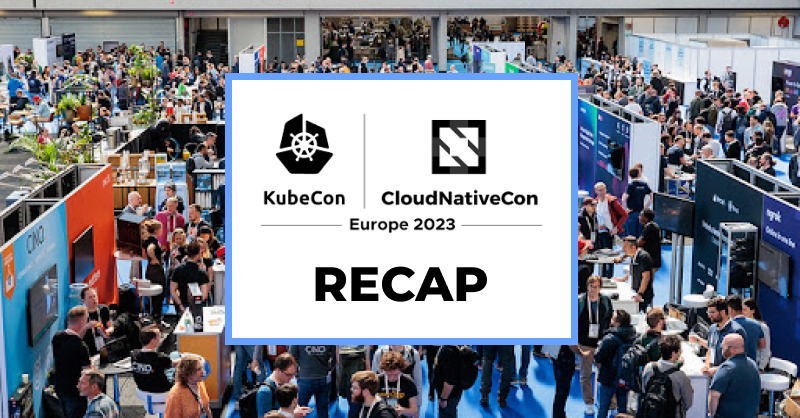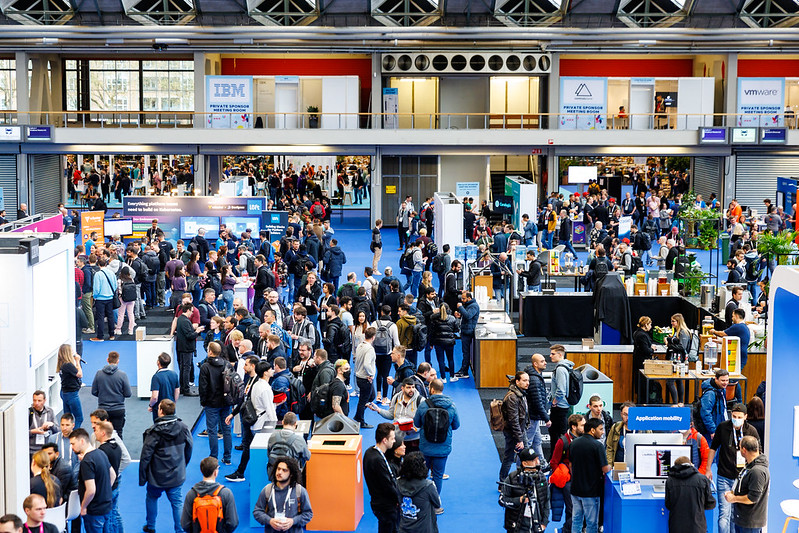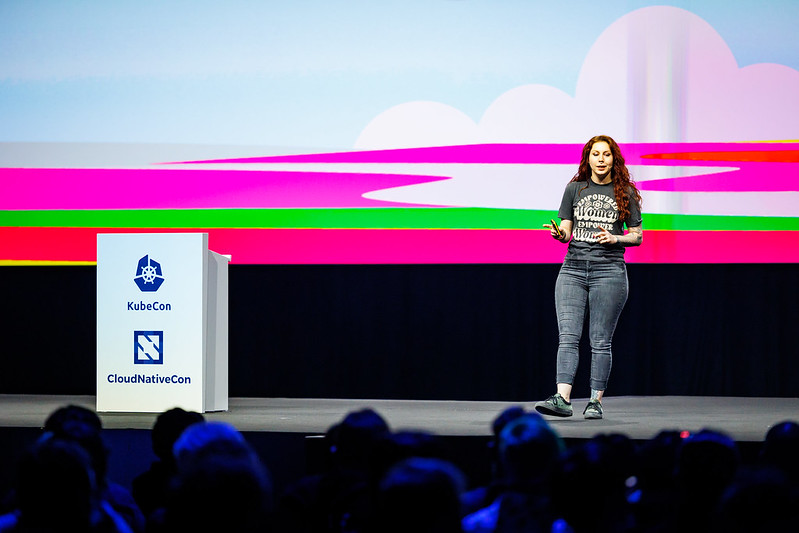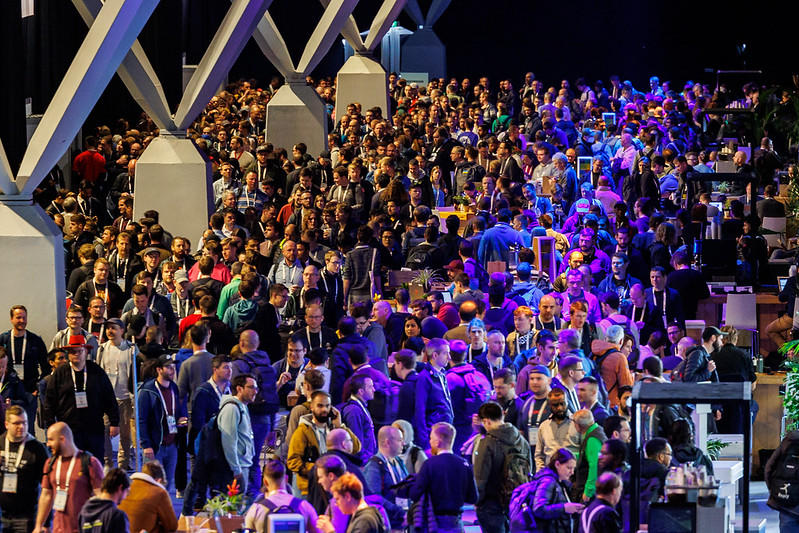Apr 24 2023

KubeCon Amsterdam was an incredible gathering of like-minded professionals, bringing together devops, software engineers, vendors, and cloud technology enthusiasts from around the world. This year’s event was the biggest KubeCon + CloudNativeCon ever, with a sold-out attendee list of 10,000 strong. The sheer scale of the event was a testament to the growing popularity of cloud native technology and the vibrant community that supports it.
The event was a tremendous success, with the number of contributors, project contributions, projects, ambassadors, and other indicators all trending upwards. This positive growth trajectory is expected to continue in the years ahead, further solidifying the cloud native ecosystem as a critical pillar of modern software development.
The Cloud Native Computing Foundation (CNCF) continues to attract new members from a wide variety of companies that are active in the cloud space. During the conference keynote, several new members, including Lumigo, HCLTech, Hitachi, and others, were announced, each bringing their own unique expertise to the community. This is a clear indication of the growing importance of cloud native technology and the impact it is having on the wider technology landscape.
Day 0: pre-Kubecon events
KubeCon + CloudNativeCon is not an isolated event any more. It attracts many communities who want to build their events around the periphery of the main event that helps gather a lot of the technologists. Therefore, KubeCon + CloudNativeCon commenced with a variety of day 0 events.
One of the events was Observability Day Europe, which placed the focus on cloud-native observability projects such as Prometheus, Fluentd, OpenTelemetry, and OpenMetrics. The event followed the KubeCon pattern of being a vendor-neutral space to share knowledge, discuss and collaborate on best practices all focused around addressing observability challenges. It catered to both new and experienced practitioners, and included updates on observability projects such as Prometheus andOpenTelemetry. These talks covered topics such as newly released features, improvements, and enhancements.
A few of the notable highlights from the event were:
Prometheus: One interesting update was from Prometheus version 2.43, which included support for out-of-order sample ingestion, native histograms, and memory usage improvements.
OTel project: The OpenTelemetry project also had updates on improvements, including histogram support, log bridge, finalized communication protocol OTLP, and the announcement of merging with Elastic converging on ECS standards.
There were also talks on using native histograms in production, and using OpenTelemetry’s exponential histograms in Prometheus. The afternoon kicked off with a panel discussion on the future of observability, which concluded in a very optimistic note for the technology and larger community.
Some of the Day 0 events were project specific. These were ArgoCon, CiliumCon, Istio Day, Linkerd Day. Others were about areas of topical interest to larger communities such as Cloud Native Telco and WASM days, Kubernetes Batch + HPC or Edge events.
I’d like to make a special mention about the Cloud Native Rejekts conference, which is an event held outside the purview of the CNCF. It is organized by an independent community of cloud native technologists, but is held around KubeCon + CloudNativeCon. It encourages speakers to submit sessions that have been rejected by KubeCon. It is an intimate event (caps at around 200) and is a great way to meet interesting people, also passionate about cloud.
Kubecon Day 1

As is typical of KubeCon + CloudNativeCon events, the day began with presentations on the state of CNCF projects and the community. New certifications in Cloud Native and GitOps were announced. Efficiency-enhancing projects were a highlight of this edition, with topics like energy consumption and carbon footprints of Kubernetes clusters taking center stage. Kepler and KEDA, in particular, received a lot of attention.
RedHat’s session on calculating energy consumption using Kepler’s per capita metric was noteworthy, leveraging CNCF projects such as Rook Ceph, Jaeger, and others to promote sustainability in cloud native systems. Many CNCF projects, including Vitess, Open Policy Agent, Linkerd, Harbor, Fluentbit, Flux, Envoy, and TUF, presented their latest updates. Throughout the day, several talks focused on improving debugging, troubleshooting, metrics, and observability.
RedHat also introduced the “correl8r” project, which automates signal collection for alerting, generating a graph from metrics collected by its agents for easy root cause analysis. Another RedHat session demonstrated how telemetry, logs, and traces can be used to debug and solve engineering problems that arise in cloud native systems.
The day also included talks for teams with more mature monitoring practices, with one demonstrating strategies for keeping log monitoring infrastructure performant by adjusting cardinality dimensions. Another talk explored service mesh-based solutions for rolling out observability across clusters to collect traces and metrics. Overall, KubeCon + CloudNativeCon delivered an impressive showcase of innovation and community engagement.
Kubecon Day 2

The keynote delivered by Emily Fox, co-chair of the conference, was a resounding success, capturing the attention and imagination of the attendees. Emily highlighted the crucial role played by the Cloud Native Computing Foundation (CNCF) in enabling organizations to develop and manage scalable applications in diverse cloud environments.
However, Emily also drew attention to a pressing concern in the rapidly evolving world of cloud native technology. With each new technical innovation, the depth of knowledge required to master it decreases. This can lead to the loss of valuable lessons learned and institutional knowledge over time, as each generation of technologists builds upon the previous without necessarily understanding the full scope of what came before.
To address this challenge, the CNCF stresses the need to preserve and transfer information, actively pursuing succession planning and building a community of leaders to save the “knowledge glaciers” and transfer institutional and technical knowledge within the ecosystem.
Emily urged the audience to embrace this goal, highlighting that failure to do so could result in the community losing valuable knowledge with each new group of technologists. As a consequence, important lessons like how to deal with problems that arise after implementing new systems could be forgotten over time. To prevent this, Emily called for proactive planning for the future and the training of new leaders in the field, empowering them to keep the knowledge alive.
Her concluding message emphasized the importance of planting the seeds of tomorrow’s leaders and creating space for the community to grow and bloom, in line with the theme of the event. Emily’s keynote was a call to action for the entire community to come together, preserve their collective knowledge, and build a brighter future for cloud native technology.
Kubecon Day 3

During the final day of the conference, the keynote stage was filled with exciting updates and insights from members of the community. The theme of the talks centered around using cloud native technologies to solve complex problems. The diverse topics covered included identity, streaming video, data protection, and their impact on the larger cloud native ecosystem.
Program Chair Aparna Subramanian delivered the final keynote, which focused on how to think about platforms over Kubernetes, providing attendees with valuable insights into platform design and architecture.
Throughout the day, several other engaging talks catered to the diverse audience, showcasing innovative solutions and best practices from the cloud native community. For instance, a team from Intuit presented a novel method to analyze in-cluster data by collecting and processing it using Numalogic, an open source tool that can introduce AIOps to any Prometheus metrics pipeline. Their aim was to minimize alert fatigue and improve platform health for their on-call teams, while avoiding any vendor or commercial tools and minimizing the burden on the cluster.
Open Telemetry, a rapidly growing technology in the cloud native ecosystem, found significant traction and adoption, evident from the various talks that included it. One session explained the basic building blocks of the OpenTelemetry Collector and how engineering teams can build connectors, pipelines, and synthesize data-flow strategies. Another session showcased how several distributed systems can benefit from using Open Telemetry to help debug them, with specific examples of deconstructing GraphQL queries and using Open Telemetry to address transparency challenges in distributed systems.
The eBPF Trend
eBPF and the open source Cilium project were major themes at the conference, with several compelling talks emerging from these topics and related projects. The introductory talks provided a comprehensive overview of eBPF technology, its history, and its applications in the context of Kubernetes observability. It also delved into how eBPF data is being leveraged by other open source projects such as Cilium Hubble, Pixie, and Parca.
Another interesting talk covered more complex use cases, demonstrating how eBPF data can be integrated with Prometheus and Grafana to create a robust toolchain that can be used effectively by many engineering teams using Kubernetes. The presentation included an example of an application that experienced problematic API requests, leading to increased error rates with subsequent changes. The talk highlighted how telemetry data collected using eBPF can help diagnose and mitigate performance degradation.
These eBPF and Cilium-related talks sparked a lot of interest among attendees, showcasing the power and potential of these emerging technologies in the cloud native space. The conference provided an opportunity for the community to learn about these technologies, share their experiences, and collaborate on new and innovative use cases.
KubeCon 2023 had something for everyone.
The KubeCon 2023 conference was truly a remarkable experience that brought together individuals from various backgrounds and expertise levels, united by their passion for cloud-native technology. The conference had something for everyone, with numerous sessions, workshops, and events catering to the diverse interests and skill levels of attendees.
First-time attendees were able to attend introductory sessions and workshops that provided a solid foundation on cloud-native technologies, making it easy for them to navigate the complex world of Kubernetes and other cloud-native tools. The more experienced practitioners had the chance to interact with contributors, learn about complex use cases, and explore advanced topics such as serverless computing, edge computing, and machine learning.
Beyond the technical sessions and workshops, KubeCon 2023 also provided an opportunity for the community to come together, share ideas, and build lasting connections. From networking events to community-led sessions and panel discussions, attendees had the chance to connect with peers, learn from each other, and contribute to the growth and evolution of the cloud-native ecosystem.
Overall, KubeCon 2023 was an incredible event that showcased the power of community and innovation in the cloud-native space. Whether you are a seasoned expert or just starting your journey, attending KubeCon is a must for anyone looking to stay ahead of the curve and explore the latest trends and developments in cloud-native technology.
Speaking of the latest trends, check out our new Kubernetes operator in this recent blog post The Magic Behind the Lumigo Kubernetes Operator.

